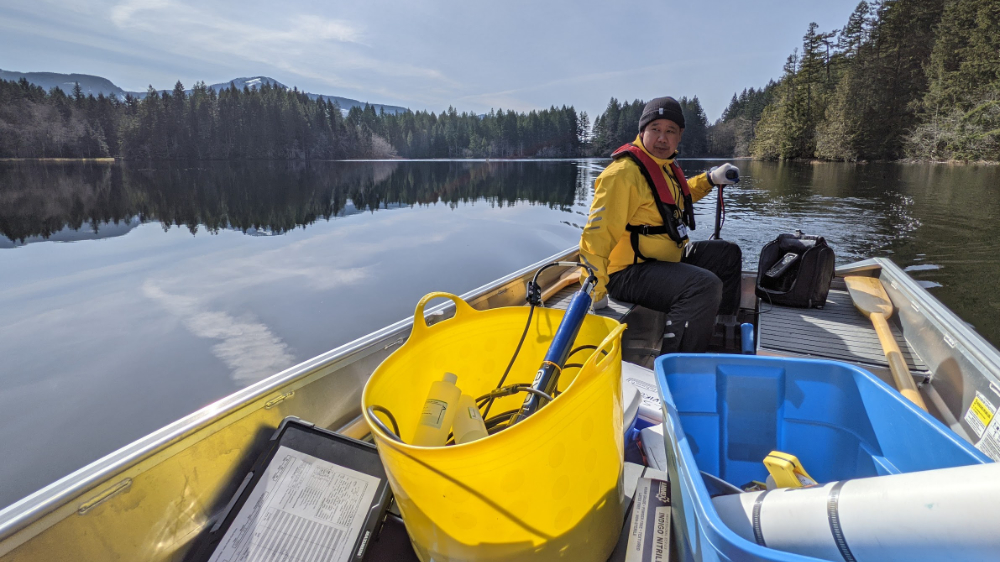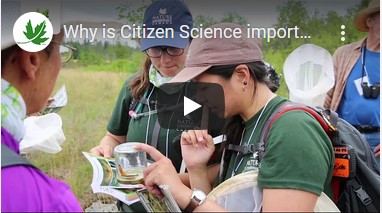Contact the B.C. Lake Stewardship and Monitoring Program
Contact the B.C. Lake Stewardship and Monitoring Program staff by email at volunteerlakes@gov.bc.ca.
Interested in volunteering?
Once you have read our program information, contact us by email for more information on how to start a lake monitoring program or to find if there are any current programs in your area.
If you are interested in volunteering for a Level 1 study, contact the BC Lake Stewardship Society directly.
Help us improve
We are always looking for more ways to improve the volunteer experience. If you have any feedback about the program, our website, or the tools and resources available, feel free to contact us.
Did you know? The program began in 1996!
Several Ministry biologists attended an international symposium where volunteer monitoring was a topic. On returning, they decided to explore the possibility of a lake monitoring program that was led by volunteers.
Through their research they discovered a non-profit organization, the BC Lakes Stewardship Society, that was already promoting volunteer monitoring of lakes. Shortly after, a partnership was born.
Since 1996, the program has supported over 500 volunteers and monitored over 120 lakes across the province.

The program was originally called the Volunteer Lake Monitoring Program.
Collection notice
The personal information is collected by the Ministry of Environment and Climate Change Strategy under section 26(c) of the Freedom of Information and Protection of Privacy Act and will be used for the purpose of participating in the program. If you have any questions about the collection of your information, please contact us by email at volunteerlakes@gov.bc.ca, by phone at +1 (236) 478-2086 or by mail at PO Box 9347, Stn Prov Govt, Victoria, B.C. V8W 9M1, attn.: Ambient Surface Water Quality Programs, Knowledge Management Branch, Ministry of Environment and Climate Change Strategy.
- 3 year commitment of consecutive field data collection
- A minimum of 12 sampling events per year is required
- Volunteers must provide their own watercrafts, fuel and related safety equipment, including personal flotation devices
- Training is free
- Insurance coverage is provided
Watch a video from Nature Conservancy of Canada about what Citizen Science is and why it's important.

The B.C. Lake Stewardship and Monitoring Program relies on Citizen Science to help monitor the health of lakes around the province.
